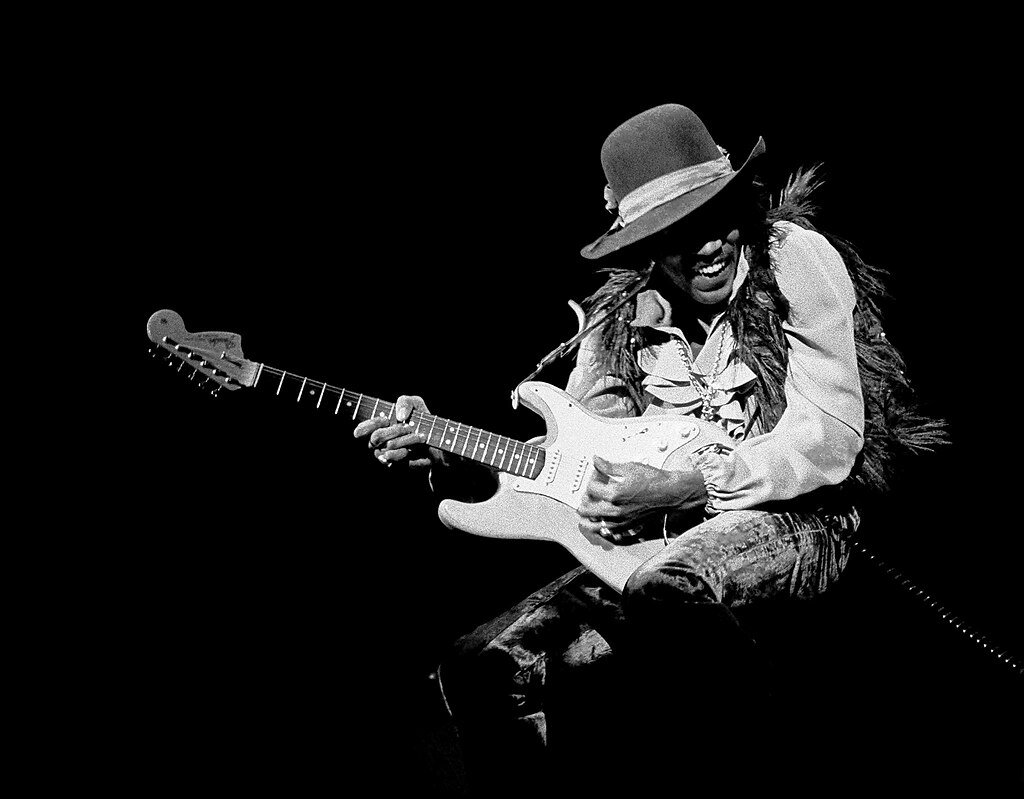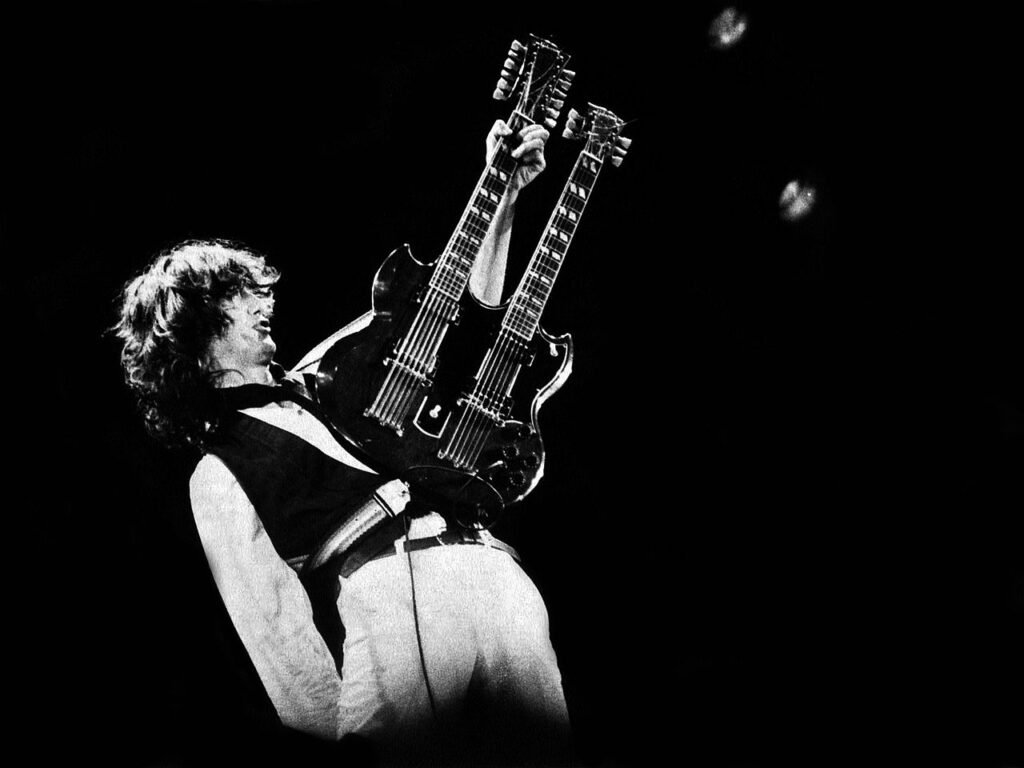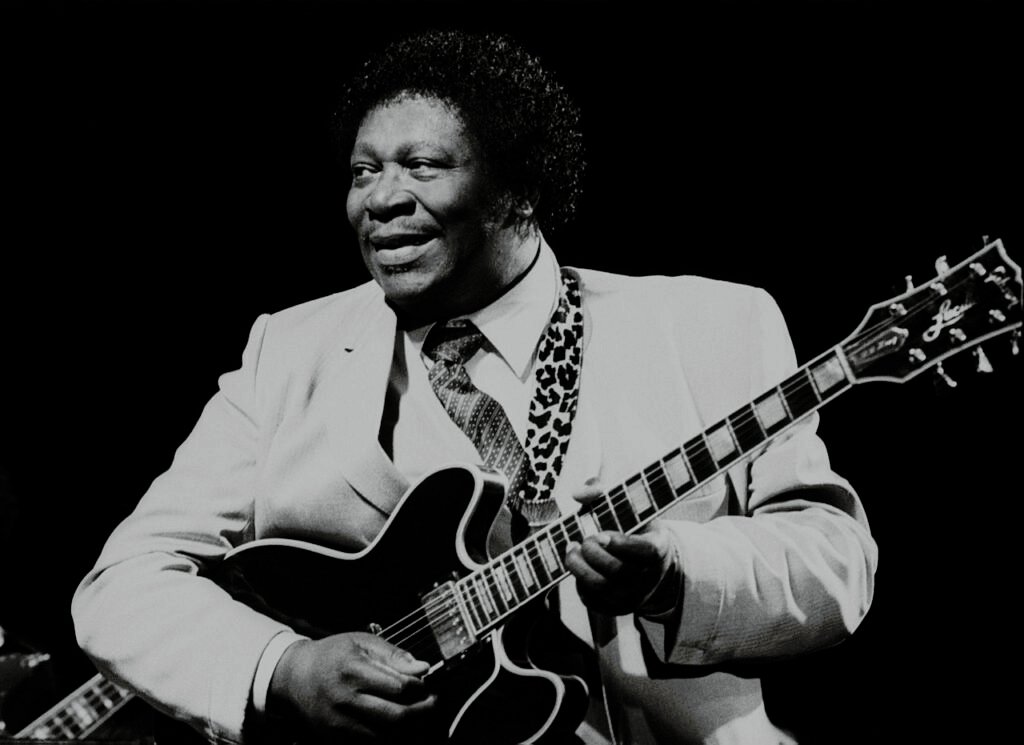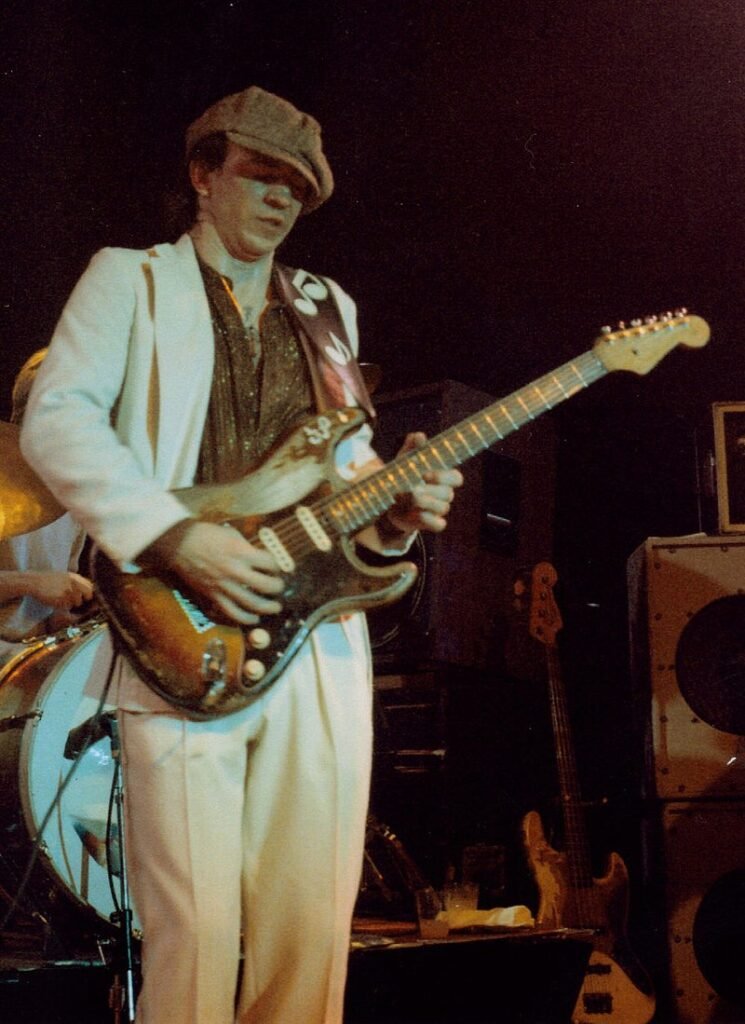Introduction
In the realm of music, few instruments wield as much power and captivation as the guitar. From its humble beginnings to becoming a symbol of rebellion, expression, and virtuosity, the guitar has been mastered by countless musicians. Among them, certain individuals stand out not just for their skill but for their profound influence on generations of players to come. Here, we celebrate the top 5 guitar players of all time, exploring their stories and unparalleled achievements.
Table of Contents
Jimi Hendrix

The name Jimi Hendrix is synonymous with innovation and boundless creativity.Born into humble beginnings in Seattle in 1942, Hendrix revolutionized electric guitar playing with his experimental techniques and electrifying performances. His ability to manipulate feedback, incorporate elements of blues, rock, and psychedelia, and his unparalleled stage presence made him an icon of the 1960s counterculture.
Hendrix’s discography includes timeless classics such as “Purple Haze,” “Voodoo Child (Slight Return),” and “All Along the Watchtower.” His influence transcends generations, inspiring countless musicians to push the boundaries of what is possible on the guitar. Despite his untimely death in 1970 at the age of 27, Jimi Hendrix’s legacy endures as a testament to the limitless possibilities of the instrument.
Other than his musical innovations, Jimi Hendrix’s impact on popular culture and fashion cannot be overstated. With his flamboyant stage attire, unconventional hairstyles, and charismatic persona, Hendrix became a style icon of the 1960s. His bold fashion choices and non-conformist attitude inspired countless individuals to embrace self-expression and push the boundaries of conventional fashion norms.
Moreover, Hendrix’s influence extended beyond music and fashion, as he became a symbol of social change and liberation during a turbulent era marked by civil rights movements and anti-war protests. His message of peace, love, and artistic freedom continues to resonate with audiences worldwide, solidifying his status as an enduring cultural icon and musical pioneer.
Eric Clapton

Often referred to as “Slowhand,” Eric Clapton’s impact on the world of guitar playing is immeasurable. Born in Surrey, England, in 1945, Clapton rose to prominence in the 1960s as a member of The Yardbirds, John Mayall & the Bluesbreakers, Cream, and Derek and the Dominos. His impeccable blues phrasing, soulful expression, and melodic sensibility set a new standard for guitarists around the globe.
Clapton’s catalog boasts timeless hits such as “Layla,” “Tears in Heaven,” and “Crossroads.” Throughout his career, he has consistently reinvented himself while staying true to his blues roots. Eric Clapton’s influence extends far beyond his music, earning him a place among the greatest guitarists of all time.
In addition to his musical accomplishments, Eric Clapton’s life has been marked by personal triumphs and challenges. Despite achieving immense success and adoration from fans worldwide, Clapton has also grappled with addiction and personal loss. His struggles with substance abuse are well-documented, yet Clapton’s resilience and determination to overcome these obstacles have inspired many.
Furthermore, his openness about grief, particularly following the tragic loss of his son Conor in 1991, has shone a light on the human experience of pain and healing. Clapton’s journey, both as a musician and as a man, reflects the complexities of the human spirit and serves as a testament to the transformative power of music and perseverance.
Jimmy Page

As the driving force behind Led Zeppelin, Jimmy Page solidified his status as one of the most influential guitarists in rock history. Born in London in 1944, Page’s virtuosic playing, innovative use of guitar effects, and songwriting prowess helped define the sound of the 1970s.
Page’s iconic riffs on songs like “Whole Lotta Love,” “Stairway to Heaven,” and “Kashmir” have become legendary, showcasing his unparalleled creativity and technical skill. Beyond his work with Led Zeppelin, Page’s contributions as a session musician and producer further demonstrate his versatility and influence on the world of music.
Besides his contributions to music, Jimmy Page’s impact extends beyond the realm of rock and roll. He has been an avid proponent of preserving music history, particularly through his efforts to restore and digitize iconic recordings from the past. Page’s dedication to preserving the legacy of blues and folk music has led him to champion various archival projects, ensuring that future generations have access to the rich tapestry of musical heritage.
Additionally, his commitment to environmental causes, including efforts to combat climate change and promote sustainability, reflects a broader commitment to using his platform for positive change. Jimmy Page’s influence transcends his role as a guitarist and musician, embodying a commitment to preserving cultural heritage and fostering a better world through the power of music.
B.B. King

Revered as the “King of the Blues,” B.B. King’s influence on the guitar extends far beyond the realm of blues music. Born Riley B. King in Mississippi in 1925, King’s soulful playing and emotive singing style earned him worldwide acclaim and countless accolades throughout his career.
King’s signature vibrato and precise phrasing can be heard on classics like “The Thrill Is Gone,” “Every Day I Have the Blues,” and “Sweet Little Angel.” His influence on subsequent generations of guitarists, from rock to jazz to blues, is undeniable, solidifying his place as one of the greatest guitar players of all time.
Albeit his musical prowess, B.B. King’s impact extended beyond the stage through his dedication to education and philanthropy. Throughout his life, he remained committed to supporting young musicians and promoting music education initiatives, recognizing the importance of nurturing talent and preserving the legacy of blues music.
On top of that, King’s philanthropic efforts also included advocating for social justice causes, using his platform to raise awareness about issues such as poverty and racial inequality. His legacy as the “King of the Blues” transcends his musical achievements, encompassing his enduring commitment to uplifting others and leaving a positive impact on the world.
Stevie Ray Vaughan

Hailing from Texas, Stevie Ray Vaughan revitalized the blues genre with his fiery guitar playing and raw emotion. Born in 1954, Vaughan’s virtuosity and showmanship captivated audiences around the world, earning him a reputation as one of the greatest guitarists of his generation.
Vaughan’s blistering solos and soulful interpretations of blues standards on songs like “Pride and Joy,” “Texas Flood,” and “Voodoo Chile (Slight Return)” showcase his unparalleled talent and deep connection to the music. Despite his tragic death in 1990, Stevie Ray Vaughan’s legacy lives on, inspiring aspiring guitarists to channel their passion and emotion through the power of the instrument.
What’s more, Stevie Ray Vaughan’s influence extends beyond his virtuosic guitar playing. He was a beacon of hope for those struggling with addiction, having battled his own demons throughout his life. Vaughan’s commitment to sobriety and his willingness to share his struggles openly inspired many to seek help and pursue healthier lifestyles.
Further to this, his philanthropic efforts, including support for addiction recovery programs and music education initiatives, further solidify his legacy as not only a guitar virtuoso but also a compassionate and giving individual. Vaughan’s impact on the world of music and beyond continues to reverberate, serving as a testament to the enduring power of his artistry and humanity.
Conclusion
These five guitar players have left an indelible mark on the world of music, influencing countless musicians and reshaping the landscape of guitar playing for generations to come. While their styles may vary, their dedication to their craft and their ability to transcend genre boundaries have cemented their status as true legends of the strings.
For more articles you can click here, thanks for reading.





